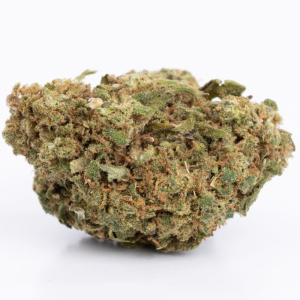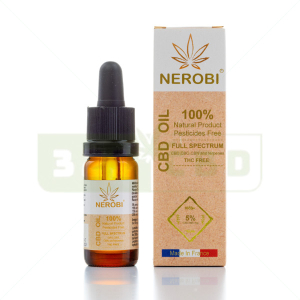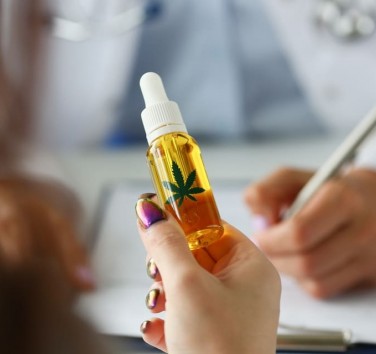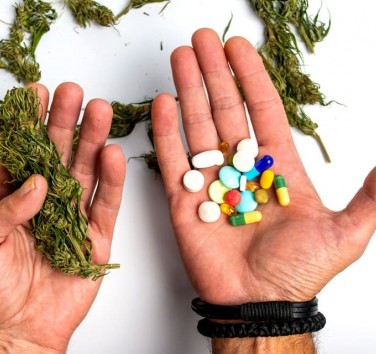Avoiding artificial food coloring
Some research dating back to the 1970s suggests that food dyes can cause hyperactivity in sensitive children. A study widely cited in the Lancet led some European countries to ban these ingredients. In the study, children who consumed a beverage containing artificial colors and preservatives showed symptoms of hyperactivity. Many government agencies, however, have determined that studies to date do not prove a link between food coloring and ADHD or warrant a ban.
Eugene Arnold, MD, professor emeritus at the Center for Psychiatry and Behavioral Health of the Ohio State believes there is ample evidence that artificial colors can negatively affect the behavior of children and perhaps even adults with ADHD. He speculates that they are not the main cause of hyperactivity, however, there are some individuals in whom food coloring may have a significant role in hyperactivity.
For this university professor, dyes have no nutritional or health benefits and are only used to make foods more appealing. Read labels and choose products without artificial colors or additives and see if that's one of the home remedies for ADHD that works for you.
Increase Omega-3
Omega-3 fatty acids found in high amounts in certain types of fish can help curb inflammation. They are good for your heart, and there is compelling evidence that omega-3s are also good for the brain - potentially one of the home remedies for ADHD. The brain is 60% fat and fat insulates neurons to help the brain function more easily.
Inflammation is involved in many brain disorders and the anti-inflammatory effects of omega-3s may also help. Neuropsychopharmacology research has found that children with ADHD have low levels of omega-3s in their blood.
When children received omega-3 supplements, their ADHD symptoms, including hyperactivity, inattention, impulsivity and cognitive performance, improved. The benefits are not immediate. It may take 3 months to increase your levels, such as salmon, mackerel and trout, or supplements.
%20(1).jpg)
Try behavioral therapy
Behavioral therapy can help alleviate ADHD symptoms, especially when combined with medication. A structure can be created to spend time at home while developing routines on set schedules.
Parents can help by praising a child for what he or she is doing well instead of criticizing the behavior. The National Institute of Mental Health's Multimodal Treatment of Children with ADHD study found that medication therapy alone or medication combined with behavioral therapy resulted in the greatest improvement in a child's ADHD symptoms compared with treatment by a local physician, even if that care included medication.
The combination worked best to improve anger management and emotional control, benefiting interactions with parents and school, the JAMA Psychiatry study found. The combination treatment has the added benefit of treating associated ADHD symptoms and improving the level of functioning of ADHD patients, and reducing the dose required for drug treatment, which in turn may reduce medication-related side effects.
Use Micronutrients
Micronutrients are vitamins and minerals that we need in smaller amounts than other nutrients, and there is evidence that children with ADHD may have micronutrient imbalances.
When researchers gave children with ADHD a micronutrient supplement containing 13 vitamins, 17 minerals, and 4 amino acids, the children showed marked improvements in inattention symptoms and overall functioning compared with those who took a dummy pill or placebo.
However, the supplement did not appear to help with hyperactivity or impulse control. The results appear Journal of Child Psychology and Psychiatry. If children do not have a balanced diet, a multivitamin containing a range of nutrients is a good idea.
No screens before bed
Sleep is important for proper brain function, and one of the best ways to encourage your children to sleep better is to limit their use of phones, computers, and other blue light emitting devices for two hours before bedtime. Helping children sleep better can be one of the simplest home remedies for ADHD. Using these devices prevents the appearance of melatonin, a hormone that the brain needs to fall asleep. These are things that can happen to your body if you take melatonin.

CBD oil, a proven product
CBD is the second most common cannabinoid found in a cannabis plant. Although it does not cause the high that THC will, it does have an effect on the brain and is associated with some mental health benefits, including for people with ADHD.
There are many CBD products available. However, perhaps the best known product is CBD oil. It is a food used to alleviate many diseases and disorders, plus the oil is often associated with recipes or formulas used as remedies. Certaines personnes qui préconisent l'utilisation de l'huile de CBD pour le TDAH suggèrent que :
CBD may be more effective than some other treatments
It may have fewer side effects than traditional drugs
Many people confirm the reduction of ADHD symptoms
It may have other mental health benefits
Part of the appeal of using CBD oil may be to avoid some of the side effects associated with traditional ADHD treatments.
While the Centers for Disease Control and Prevention (CDC) reports that between 70 and 80 percent of children with ADHD experience a reduction in symptoms after taking stimulant medications for ADHD, they can cause side effects including sleep problems, decreased appetite and mood changes.
Before deciding to try CBD oil to treat ADHD, it is important to consider the available research. Most importantly, you should always talk to your doctor before trying alternative remedies, especially for children.












